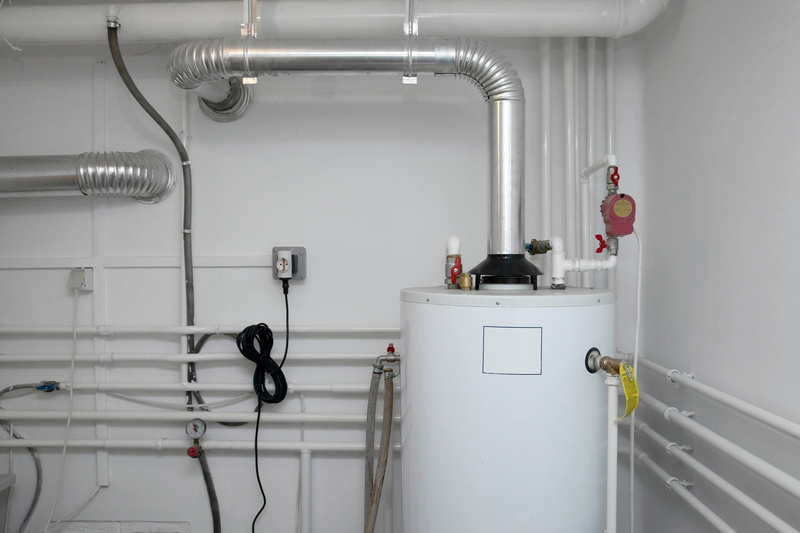
Although furnaces are the most common type of heating system in the country, boilers are close behind them. Particularly in our area, with many homes built without a central ventilation system. Boilers provide powerful and clean heating (no dust blown around from vents) and they often outlast other types of systems.
Not all HVAC contractors in the area provide boiler services, but we do. We’d like to share a few facts with you about boilers that may help you understand yours better—and that will help you know when to call our technicians for assistance.
Boilers don’t boil—at least, most don’t
The operation of a boiler is simple. Gas jets or electrical heating elements raise the temperature of the water in the boiler’s tank, and this water then circulates out to terminal points (radiators, baseboard heaters, in-floor heating elements). The water is hot, but the boiler doesn’t actually boil the water to turn it into steam. So why the name boiler? Because boilers did, at one point, boil water to turn it into steam, and it was the steam which traveled to the radiators. There still are steam boilers in operation, although usually in industrial buildings. Improved construction allows for current boilers to heat a home with hot water rather than steam.
Boilers don’t waste water
A boiler isn’t like a water heater: it doesn’t draw water from the municipal system to heat it and then send it to taps. The water in a boiler travels in a closed loop: the same water circulates, and there’s no need to draw on any extra water. The only reason to put water in a boiler is if it loses water to leaks.
Boilers pose little danger to your household
If you have an image of your boiler exploding and shooting through the top of your house—you’ve probably been watching some extreme YouTube videos. The truth is that a boiler is a safe device, and if you have baseboard heaters rather than radiators (as most modern homes do) the danger of people burning themselves from contact is extremely low. The only concern is with gas-powered boilers, which is the same concern for every gas-powered appliance. If the boiler is maintained, there’s almost no danger.
Boilers have higher energy efficiency than furnaces
One of the big benefits of a boiler is that it uses less energy to provide heat than a furnace. Water is a more effective heat transfer medium than air, so a boiler provides more heat per unit of energy than a forced-air furnace, whether gas or electric-powered.
Boilers can freeze in the winter, but it’s not common
Although we have cold winters, it’s unlikely your boiler will freeze even if it stops working. If you go on a long vacation during the winter, leave the thermostat in your house set at 55°F and this should be enough to stop boiler (and pipe) freeze.
Whenever you need to schedule service for your boiler in Maryland or Delaware, we’re the contractor to call. We have over 30 years of quality service and our technicians have numerous certifications from institutions and HVAC manufacturers.
Atlantic Refrigeration & Air Conditioning, Inc. serves Delaware and the Maryland Eastern Shore. Call us 24/7 for service.
